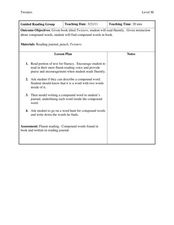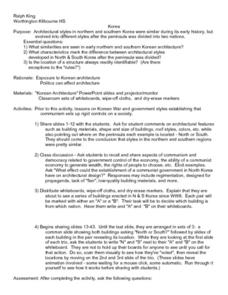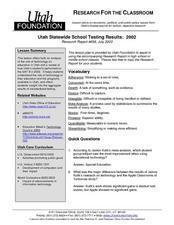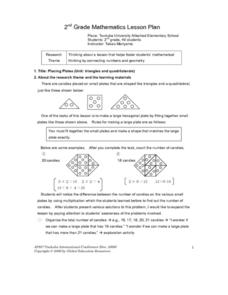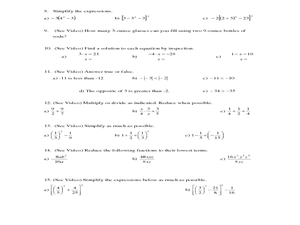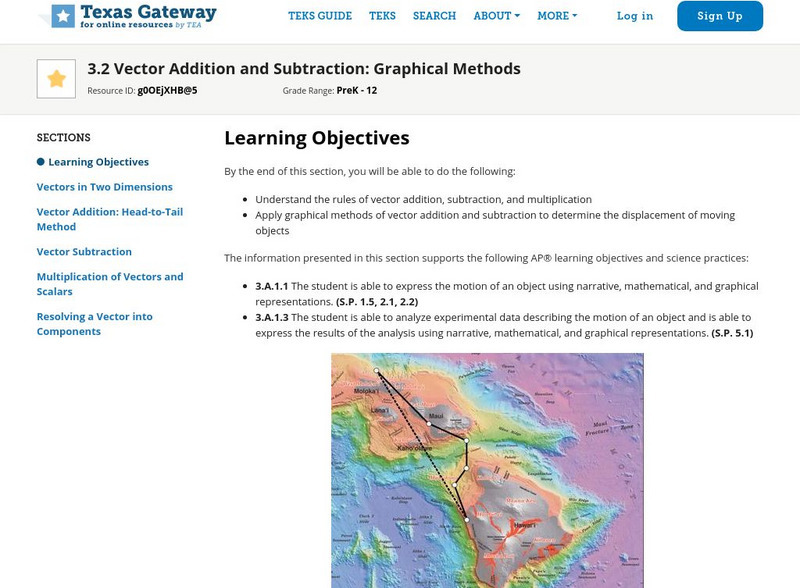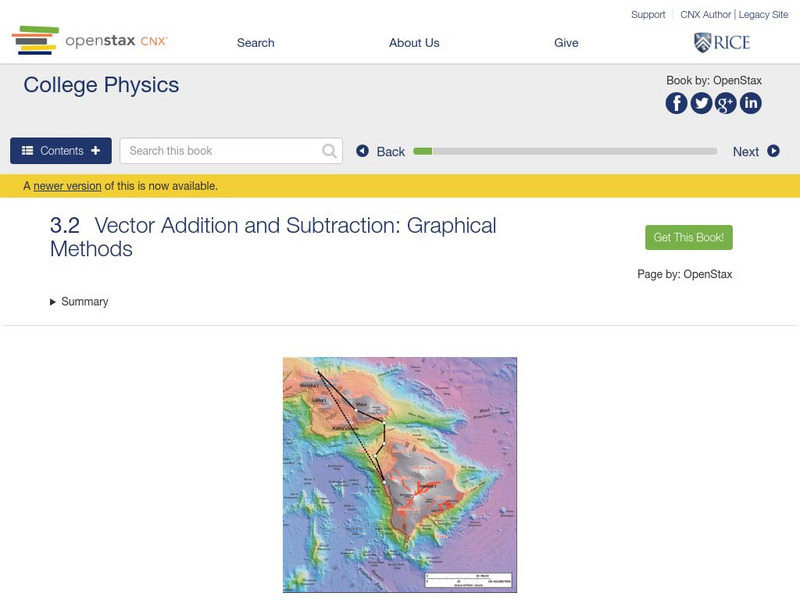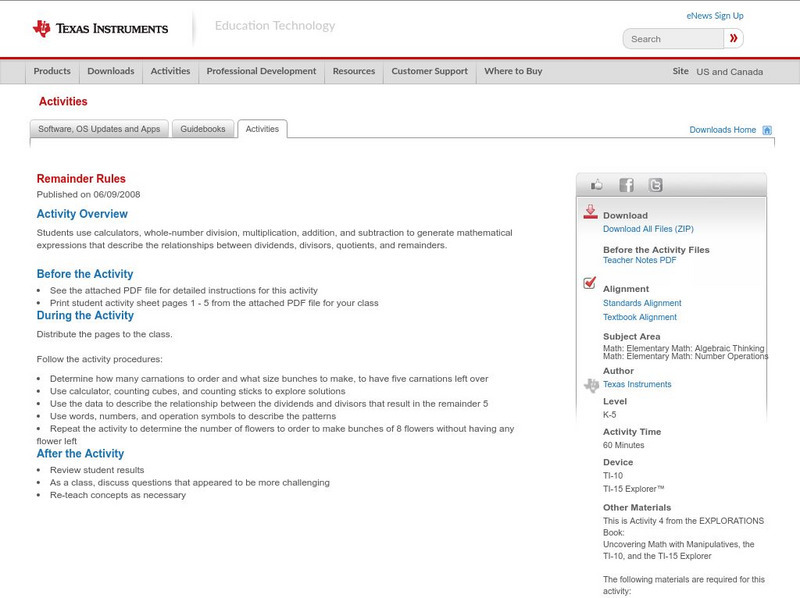Curated OER
Twisters
Learners build a tornado in a bottle and do various readings to explore tornadoes.
Curated OER
Talk-About-It
Students follow guidelines to meet with others and discuss individual complaints or small problems.
Curated OER
Our Daily Five
Students explore the food pyramid through a class discussion, hands-on experience with food items, and a floor game that helps them to identify the food group involved. Lesson extensions include the use of play money, art, and dance.
Curated OER
How Did the Immigrants Get to the United States?
Third graders search TDC database for images of immigration from other countries, maps, and diaries. They identify the challenges that immigrants had to endure to reach the United States.
Curated OER
The U.S. Constitution and Disability Laws
Students examine the United States Constitution for laws that protect people with disabilities. They discover how the education system provides equal education to all students and how the Federal Government makes sure this is occuring.
Curated OER
Twisters
Students differentiate between the terms 'tornado watch' and 'tornado warning' and simulate the conditions that produce tornadoes. They read "Night of the Twisters" by Ivy Ruckman and conduct an experiment using two-liter plastic...
Curated OER
Korea Research
Students investigate the details surrounding Korean Architecture. They look at some of the different styles and see how they may differ from some others found in the world. The research is done in order to appreciate the uniques cultural...
Curated OER
Matching Pairs
Students examine the probability of the various findings in a game and determine the odds of winning. They differentiate between the facts of odds versus probability. Students use higher order thinking skills to explain how a problem is...
Curated OER
Utah Statewide School Testing Results: 2002
Students investigate the statewide school test scores for the year of 2002 in Utah. They use critical thinking skills to analyze the results. The target of the lesson is to measure the effect of using instructional technology in the...
Curated OER
Placing Plates
Second graders investigate the task of making a large hexagonal plate by putting together smaller ones. The lesson has detailed example problems for the teacher to use during direct instruction. The manipulative activities strengthen the...
Curated OER
Lesson #151 Circles, Parabolas, and Lines
Young scholars write equations for parabolas, circles and lines. In groups, they use computer software to play a game with circles, lines and parabolas. Students play games on the computer to find the equations for the given shape.
Curated OER
Number Patterns and Sequences
In this number patterns and sequences worksheets, students complete activities for number patterns and sequences including Fibonacci's Sequence, lines, regular polygons, and towers. Students complete 15 problems.
Curated OER
Principal vs Principle
In this English grammar worksheet, students understand the differences between the usage of the words "principal" and "principle." Students read the definition of each and the given examples before taking the online...
Curated OER
Math Practice Exam
In this math practice exam instructional activity, students simplify expressions, find volume and area, write mathematical expressions multiple and divide expressions and reduce fractions. Mention is made of associated videos, but no...
Curated OER
Simple Circuits
Students investigate how series and parallel circuits work. In this physics lesson, students build their own simple circuits and compare their characteristics. They explain the importance of circuit breakers in household circuits.
Texas Education Agency
Texas Gateway: 3.2 Vector Addition and Subtraction: Graphical Methods
By the end of this section, you will be able to understand the rules of vector addition, subtraction, and multiplication and to apply graphical methods of vector addition and subtraction to determine the displacement of moving objects.
OpenStax
Open Stax: Vector Addition and Subtraction: Graphical Methods
In this interactive site, students will begin to understand the rules of vector addition, subtraction, and multiplication and apply graphical methods of vector addition and subtraction to determine the displacement of moving objects.
OpenStax
Open Stax: Vector Addition and Subtraction: Analytical Methods
In this interactive students will begin to understand the rules of vector addition and subtraction using analytical methods. They will apply analytical methods to determine vertical and horizontal component vectors.
Texas Instruments
Texas Instruments: Integer Subtraction What's the Difference?
In this activity, students use the number line to investigate subtraction of integers and to justify and support the rules they develop.
Texas Education Agency
Texas Gateway: 3.3 Vector Addition and Subtraction: Analytical Methods
By the end of this section, you will be able to understand the rules of vector addition and subtraction using analytical methods, apply analytical methods to determine vertical and horizontal component vectors, and apply analytical...
Khan Academy
Khan Academy: Kirchhoff's Loop Rule Review
Review the key terms and skills related to Kirchhoff's loop rule, including how to determine the electric potential difference across a component.
Mocomi & Anibrain Digital Technologies
Mocomi: Addition and Subtraction of Integers
Explores the commutative, associative, and distributive properties of integers, and rules for adding and subtracting them.
Texas Instruments
Texas Instruments: Remainder Rules
Students use calculators, whole-number division, multiplication, addition, and subtraction to generate mathematical expressions that describe the relationships between dividends, divisors, quotients, and remainders.
NumberNut
Number Nut: Subtraction: 3 Digit Numbers
A brief lesson on subtracting from three-digit numbers that includes detailed examples, rules, and further explanation of borrowing.





